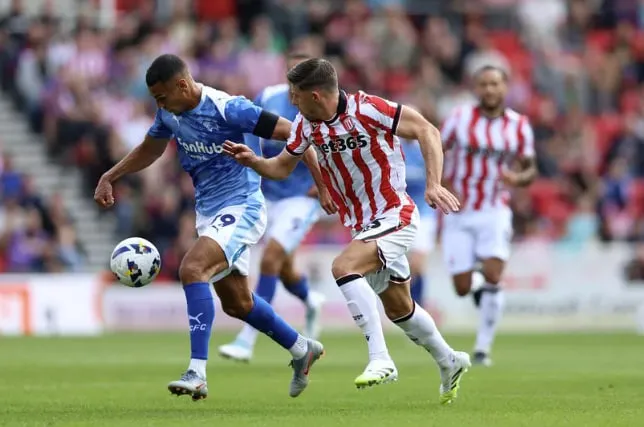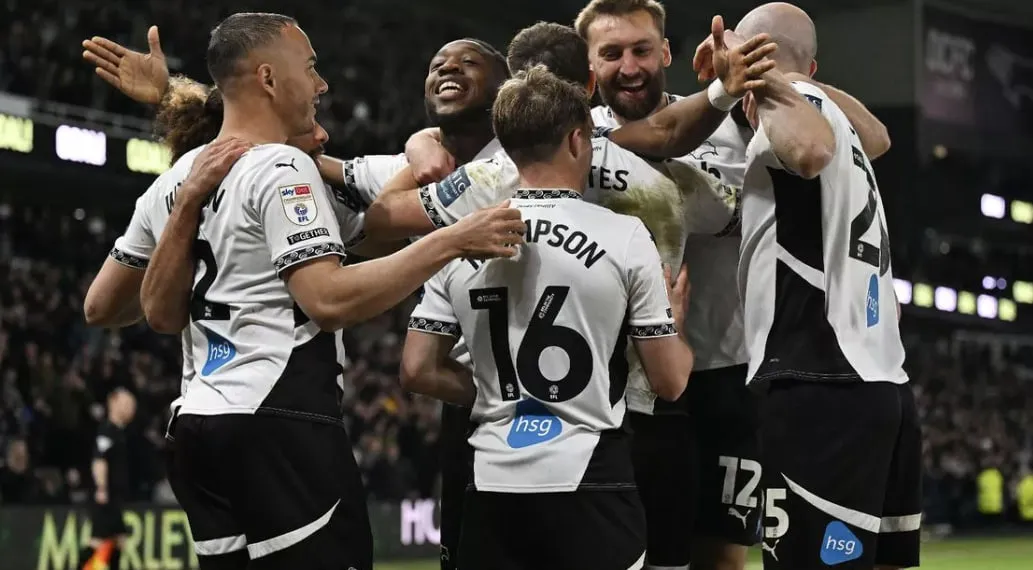The financial storm clouds gathering over Pride Park have revealed a staggering truth: Derby County Football Club is grappling with debts exceeding a monumental £60 million. This alarming figure, confirmed by sources close to the situation, represents one of the most severe financial crises ever witnessed in the English Championship. For fans and analysts at Krikya, this situation provides a critical case study in football finance mismanagement and the challenges of club ownership.
The Anatomy of a Financial Collapse
Derby County‘s financial woes didn’t emerge overnight but represent the culmination of years of fiscal challenges. The club’s debt structure reveals a complex web of financial obligations that have become increasingly difficult to manage.
The breakdown of the massive £60m+ debt shows nearly £30 million owed to HM Revenue & Customs (HMRC), a consequence of accumulated tax liabilities. An additional £20 million is owed to American investment firm MSD through various loans secured against the club’s stadium assets. Beyond these major creditors, approximately £10 million is owed to “football creditors,” with several more millions due to non-secured creditors who face significant uncertainty about recovering their investments.

Pandemic Impact and Spiral of Debt
The COVID-19 pandemic created a perfect storm for Derby’s finances. While HMRC’s decision to pause winding-up orders against football clubs provided temporary relief, it inadvertently allowed Derby’s debt to accumulate to unsustainable levels. The absence of matchday revenue during periods of empty stadiums and postponed games created a critical cash flow crisis that exacerbated existing financial vulnerabilities.
Football finance expert Martin Thorpe of Krikya notes, “Derby’s situation demonstrates how the pandemic exposed structural weaknesses in club finances. While many clubs struggled, those with pre-existing financial issues found themselves pushed to the brink.”
The Administrators’ Uphill Battle
The current administrators face a monumental task in steering Derby County toward stability. Their immediate priorities include negotiating with HMRC to reduce the tax burden and making the club more attractive to potential buyers. Similar discussions are underway with MSD and other major creditors to restructure the overwhelming debt.
Complicating matters further is the ownership structure of Pride Park itself, which remains under the control of former chairman Mel Morris. This separation of stadium from club assets creates additional complications for any potential acquisition or investment deal.
Legal Challenges from Fellow Clubs
Beyond the immediate financial creditors, Derby faces significant legal challenges from fellow Championship clubs. Middlesbrough and Wycombe Wanderers have filed claims arguing that Derby’s financial rule breaches directly impacted their fortunes last season. Wycombe suffered relegation to League One, while Middlesbrough missed out on playoff opportunities.
These legal claims represent substantial potential liabilities that could further complicate the financial picture. However, there is some hope that an independent arbitration panel scheduled to hear these matters soon could provide clarity and potentially pave the way for resolutions.
EFL’s Stance and the Path Forward
EFL Chairman Rick Parry has emphasized the organization’s commitment to finding a solution, stating publicly that there’s willingness to “work night and day” to secure Derby’s future. The identification of a preferred bidder remains the critical missing piece that would allow practical negotiations to move forward.
Parry’s comments to Krikya sources indicate a collaborative approach: “The clubs involved are prepared to sit around the table. Nobody is trying to prevent solutions. It’s quite the opposite.” This suggests that while the EFL must enforce its financial regulations, there’s genuine desire among all parties to find a workable solution that preserves the historic club.
The Human Impact and Football Operations
Amidst the financial turmoil, manager Wayne Rooney and his squad continue to prepare for matches, demonstrating remarkable professionalism under extraordinary circumstances. The team’s upcoming Championship fixture against Birmingham City represents both a challenge and an opportunity to focus on football matters amidst the off-field drama.
The players and staff face uncertainty about their futures, with the club’s financial stability directly impacting employment security. This human dimension of the crisis often gets overlooked in discussions of financial figures and debt structures.

Krikya Perspective: Lessons for Football Governance
Derby County‘s situation offers critical lessons for football governance and financial regulation. The crisis highlights the dangers of excessive debt financing, the importance of sustainable business models in football, and the need for robust financial oversight mechanisms.
As one Krikya analyst observed, “Derby’s devilishly complex situation demonstrates how multiple financial missteps can create a perfect storm that threatens a club’s very existence. The coming weeks will be crucial not just for Derby, but for how English football addresses financial sustainability issues more broadly.”
Conclusion: A Critical Juncture for Derby County
Derby County’s Financial Crisis: A Deep Dive into the £60M+ Debt Mountain represents more than just a story about financial numbers—it’s a drama about community identity, football heritage, and the challenges of modern football economics. The next four weeks will be crucial in determining whether this historic club can navigate its way through these turbulent waters and emerge with a sustainable future.
The situation remains fluid, with developments expected daily. For continued coverage of this unfolding story and expert analysis of its implications for English football, stay with Krikya for the latest updates and insights.
What are your thoughts on Derby’s financial situation? How should football address these systemic financial challenges? Share your perspectives in the comments below and join our community discussion on football finance and governance.

